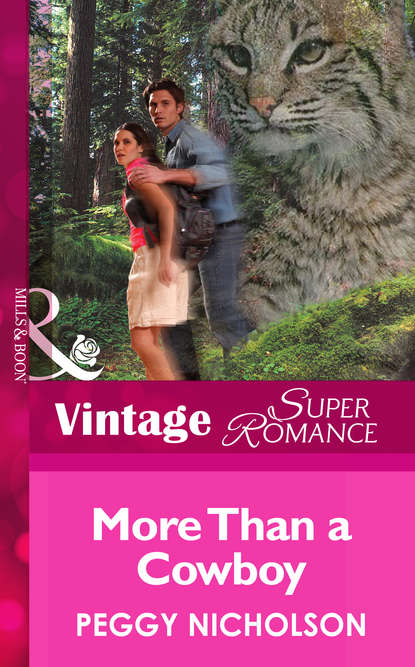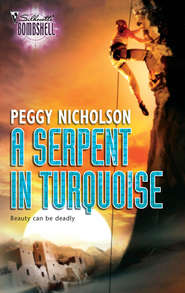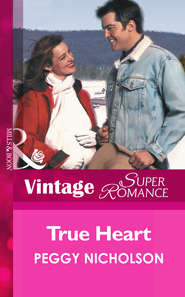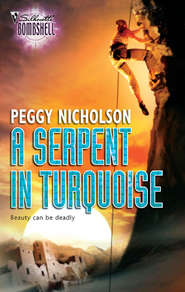По всем вопросам обращайтесь на: info@litportal.ru
(©) 2003-2024.
✖
More Than A Cowboy
Автор
Год написания книги
2019
Настройки чтения
Размер шрифта
Высота строк
Поля
“And the ski resorts, well, you remember the rumpus between the environmentalists and Vail resorts when they wanted to expand their ski runs into the Super Bowl area—the last place where native lynx were spotted in Colorado? Remember the Earth Liberation Front burned down twelve million dollars’ worth of ski lodges to protest the plan?”
Adam gave a lawman’s grunt of disgust.
“Bringing lynx back to the state has pretty well stopped ski development cold. Till the DOW can determine just how much habitat lynx need, and where they need it, we can’t allow any more development in the high country.”
“So they’re popular cats,” Adam said wryly. “No wonder they’re disappearing. Any cowboy with a rifle…”
“Who’s willing to risk a one-hundred-thousand-dollar federal fine and a prison term for killing an endangered species,” Gabe reminded him. “And sooner or later, word always gets out. Very few people have the nerve.”
“Yet your cats are vanishing, four a month. That sounds like something a little more…methodical than a trigger-happy cowboy. Got any theories who it might be?”
“Nope, but I’ve got a theory how he’s doing it.” Gabe opened a second beer for each of them. “Somebody’s using our own radio collars to hunt them down.”
“You can get the equipment to do that?”
“Yep. Buy the tracking antennas and earphones right off the Internet.”
Adam whistled softly. “Clever! And cold.”
“It’s just a notion of mine, nothing the Division has officially considered. But that’s when I thought of you. Investigating is what you do. And you’ve got a cover you could use.”
“Line-camp cowboy,” Adam mused. Three years ago, after Alice left him, he’d seriously considered quitting police work. While he’d searched his heart, he’d spent a summer cowboying in the high country north of True-heart, Colorado. “That would allow me to fit in up there, move around some. Are you losing lynx in that area?”
“That’s just about Ground Zero, or close enough. But the herds head up the trail about seven weeks from now and…” Gabe glanced at the crutches leaning against the wall. “I hadn’t realized, when I first spoke, how badly you were…”
A useful summer in the mountains, rather than stewing and fuming around here, till some doctor cleared him for duty? “Count me in, Gabe. Seven weeks from now I’ll be ready to sit a horse.”
CHAPTER THREE
LARSON NEVER chose the same place twice for their meetings, but he always picked the same kind of bar, Natwig noted grimly. Ferns and mirrors. Chrome and marble. Micro-brewery beers at eight bucks a pop, and watch the bartender smirk if you asked for a Budweiser on tap.
The clients would be all ski and city types, glossy and blow-dried, with not a care in the world. Those with high-altitude tans had gotten them on the slopes at Telluride and Crested Butte, not packing mules into back-country canyons, or crouching still as a lichen-covered slab of granite, hour after hour, waiting for a line of elk to cross a ridge and step into range.
Natwig’s restless gaze touched the mirror behind the bar, where a weathered, squint-eyed face stared blankly back at him. What’s wrong with this picture? It was he who was out of place here, standing out like a crow on a snowfield. If any of his friends should see him here, they’d know something stunk.
But then, no man he respected would set foot in a place like this. So maybe Larson wasn’t dumb in his choices, after all. Still. Let’s get a move on, dammit! Natwig finished his beer, smacked the bottle down on the polished mahogany and stood.
The drill was, he was supposed to wait till Larson showed, then follow him out to the parking lot. But down at the far end of the room, Larson was dawdling over his second margarita while he flirted with a giggly blonde who kept tossing her curls, showing off a glittery pair of diamond earrings.
Karen always wore a pair of turquoise studs that Natwig had bought her their last year in high school. Wonder if she’d like something like those sparklers?
The way he was going, he’d never find out. Every dollar he earned from this job would go to paying her medical bills and hanging on to the ranch. He shoved out through the door into frosty night air and drew a grateful breath. Too much perfume and aftershave and air freshener back there. What the hell am I doing?
What had to be done.
Arms folded against the cold, he slouched against the door of his pickup. When Larson finally sauntered out, Natwig unlocked his door. He scooped the paper bag off the floorboards, then strode across the parking lot to Larson’s Porsche—not even a year old, with not a speck of mud to mar its gleaming curves. The passenger door swung open as he approached, and he ducked inside. Set the bag between them.
“How many?” Larson’s manicured fingers reached for the parcel.
“Two.” He watched with contempt as the city man pulled out the collars, counting for himself. Didn’t he know better than to doubt a man’s word? Or realize what that kind of distrust said about the worth of his own word?
“Why only two?” Larson inspected the crushed transmitter on each collar, then dropped them back in the bag.
“Like I told you last month. It’s harder tracking lynx this time of year. Most of the snow’s melted, and what’s left is too crusty to take a print.” And the one shot he’d got at the big male north of Creede, after three days of hard stalking, he’d missed. But that failure he’d keep to himself.
“My…clients…won’t be pleased.”
“If your friends reckon they can do better themselves, tell them they’re welcome to try.”
And just who were Larson’s clients? People smart enough to want a cut-out, a middleman, separating themselves from their dirty work. People with deep pockets, to pay the kind of bounty Natwig was collecting.
The Cattlemen’s Association could raise that kind of cash. Or the ski developers. Or the timber industry, easy.
The goat-and sheepherders? Somehow Natwig didn’t see it. And as a member of the Outfitters’ Association himself, he’d heard nothing but the usual bellyaching at their annual gathering. No plan of action to fix the situation, and if there had been, they wouldn’t have needed to farm the job out.
“They’ll expect better next month.” Larson pulled out his wallet, and peeled off twenty bills from a fat wad.
As each thousand-dollar bill was laid upon his palm, Natwig felt the pressure in his chest ease the tiniest bit. Twenty thousand. Before Karen had broken her back, he’d have called that a fortune. A family with a man who could put meat on the table could scrape through a year on twenty grand.
As long as everyone stayed healthy. But now…
“And here are your latest locations.” Larson passed over a folded paper.
Imagine a world where a satellite a hundred miles overhead could pinpoint the whereabouts of those soft-stepping ghosts of the forest to fifty yards or less?
Imagine a world where somebody hired to protect all wildlife could be bribed to secretly access the DOW computers, then print out their animals’ latest locations, and pass them on to their enemies?
Not my kind of world.
Except he was trapped in it, sure as a lion up a tree. He could snarl all he wanted, but he was under the gun.
“Don’t expect too much next month. Lynx tend to travel in the spring,” he warned Larson as he gripped the door handle, eager to be out and away. “They’ll be searching for mates, looking for fresh hunting grounds.” He’d tried a couple of times to explain that just because the satellite pinpointed each cat one day per week, that didn’t mean the lynx would then sit tamely waiting till he came hunting.
If these locations were stolen from the computer yesterday, why, by today, every one of these forty-seven cats could be fifty miles to hell and gone across the mountains. Larson’s paper only gave him the place to start looking, no guarantee of finding.
But something about all this high-tech bullshit seemed to make a man arrogant, brash as the dumbest horse in blinders. If a computer said it was so—why then, it must be so. Nothing to it. Just reach out and shoot someone.
As Natwig shoved open the door and stepped out into clean air, Larson leaned over to give him a bland farewell smile. “My clients expect better.”
THEY’D RENDEZVOUSED outside of Trueheart at midnight, then Liza in her Jeep, with its caged rear end, had followed Tess’s pickup, towing its tandem horse trailer, north. Toward the high country.
A horseman could have ridden a straighter and shorter route to the summer range up through Suntop land. But constrained to travel by vehicle—and in secret—they had to circumnavigate the ranch. Their route wound up through the mountain valleys to the east, then spiraled north, then west, then finally south again.
Sixty slow-going miles of road dwindled from public two-lane to frost-heaved one-lane to muddy Forest Service and logging tracks. The scent of pine and snow blew through Tess’s open window. The jewelled eyes of deer gleamed in her headlights, then their graceful silhouettes bounded across the road and into the trees.
“Coming home,” Tess half sang aloud, as if the lynx in the car behind could hear her. “Hang on just a little longer, baby.” Liza had sedated the cat lightly for the drive, but she hadn’t dared give her more, since Zelda would have to be knocked all the way out for the final leg of her journey.
It was two hours before dawn when they reached the trailhead east of Sumner Mountain and parked. Just a whisper of cold wind stirring the pines. Stars so big and bright you could pick out colors by their light. “How is she?” Tess asked as she joined Liza at the back of her Jeep.











